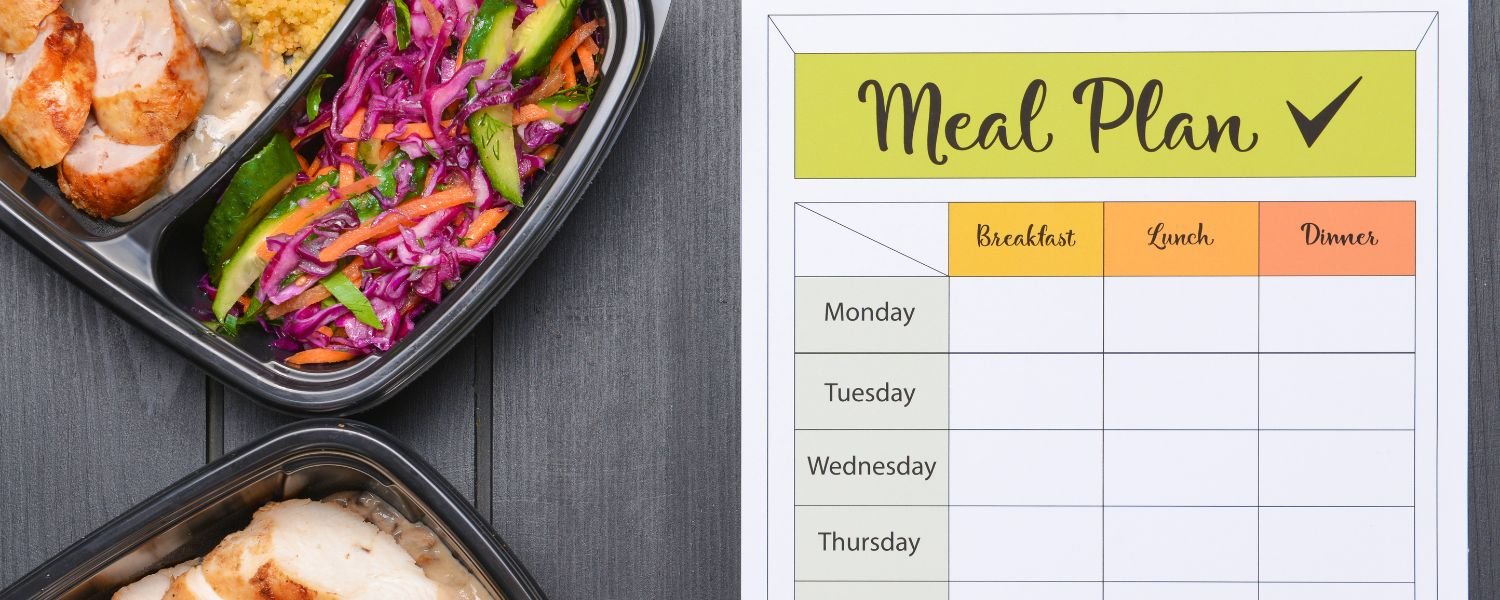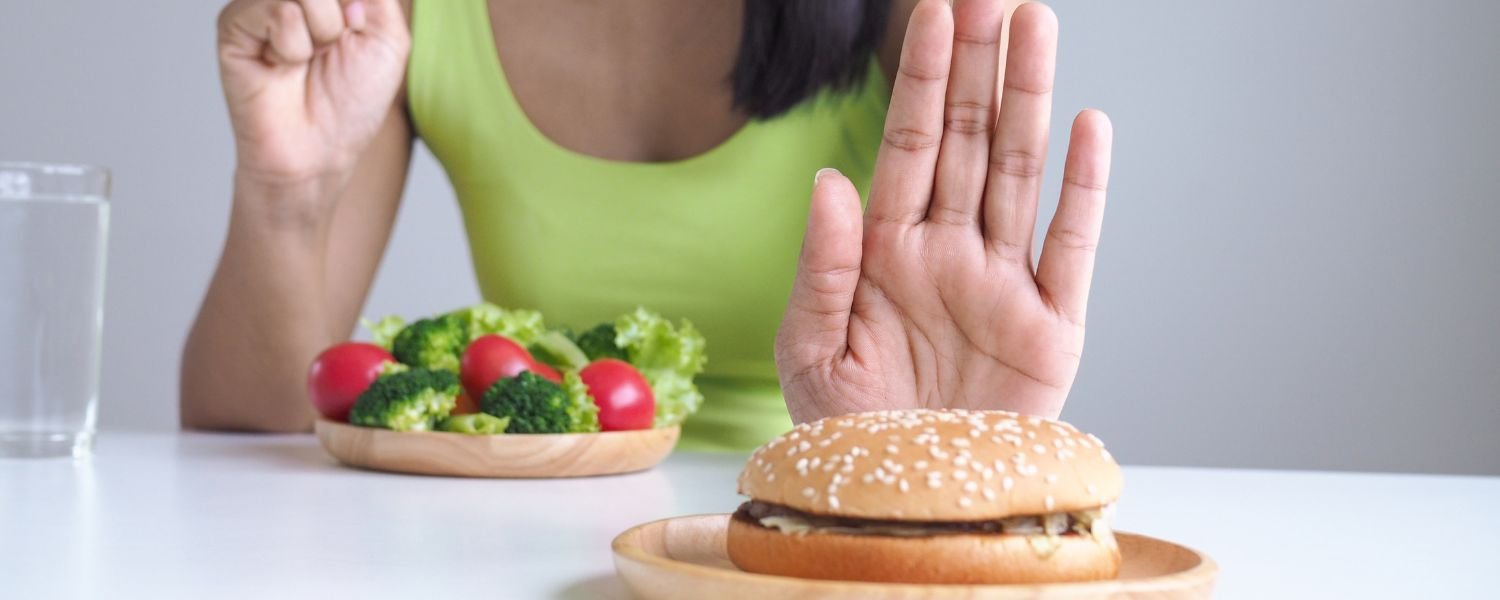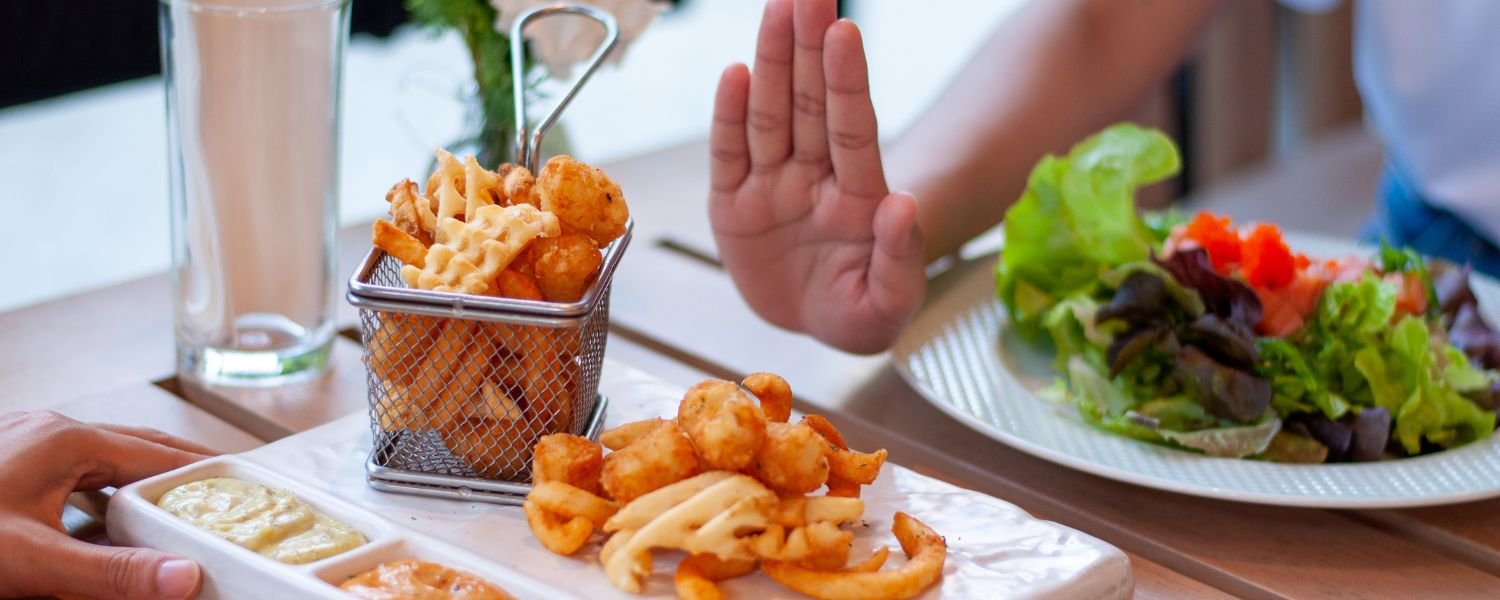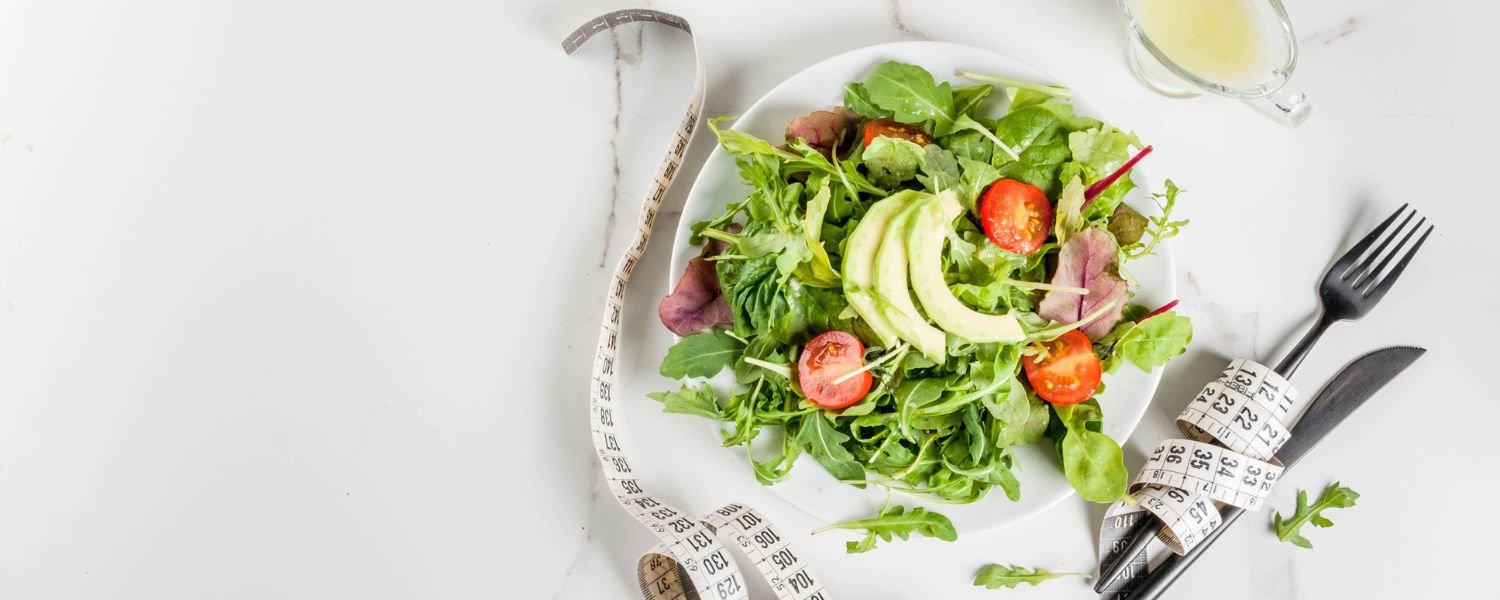Diet is an essential factor in striving for a healthy lifestyle. Among the myriad of diet plans available, the 2000-calorie Diet Plan stands out as a balanced approach to nourishing the body while managing weight.
This comprehensive blog discusses the intricacies of the 2000-calorie Diet Plan, outlining its benefits, foods to consume, and tips for successful implementation.
What Is A 2000-calorie Diet Plan?

A 2000-calorie diet Plan is a structured eating regimen that provides approximately 2000 calories daily. This calorie level is often considered standard for many adults to maintain weight.
Still, it can be adjusted based on individual factors such as age, gender, weight, height, and activity level. The 2000-calorie Diet Plan typically aims to balance macronutrients—carbohydrates, proteins, and fats—while also ensuring an adequate intake of essential vitamins, minerals, and other micronutrients.
It emphasizes consuming nutrient-rich foods while limiting or avoiding those high in refined sugars, unhealthy fats, and excessive calories.
Additionally, it often encourages portion control and mindful eating habits to promote satiety, prevent overeating, and support overall health and well-being.
Overall, the 2000-calorie Diet Plan serves as a practical and sustainable approach to nutrition, offering individuals a blueprint for healthy eating habits and weight management.
2000-calorie Diet Plan for 7 Days

Here’s a sample 2000-calorie Diet Plan for seven days:
Day 1
Breakfast
- Two whole wheat toast slices
- Two scrambled eggs
- 1 cup of mixed berries
- 1 cup of low-fat milk
Snack
- One medium apple
- 1 ounce of almonds
Lunch
- Grilled chicken breast (4 ounces)
- Mixed green salad with assorted vegetables (tomatoes, cucumbers, carrots)
- Whole grain roll
- One tablespoon of vinaigrette dressing
Snack
- Greek yogurt (6 ounces)
- One tablespoon of honey
Dinner
- Baked salmon fillet (4 ounces)
- Quinoa pilaf with mixed vegetables
- Steamed broccoli
- One small whole-wheat dinner roll
Day 2
Breakfast
- Greek yogurt with granola and mixed berries
- One medium banana
Snack
- One orange
- 1 ounce of walnuts
Lunch
- Turkey and avocado wrap with whole grain tortilla
- Baby carrots and hummus
- 1 cup of strawberries
Snack
- Cottage cheese (6 ounces)
- One slice of whole-wheat bread
Dinner
- Grilled tofu with stir-fried vegetables (bell peppers, onions, snap peas)
- Brown rice
- Side salad with balsamic vinaigrette
Day 3
Breakfast
- Vegetable omelet with spinach, mushrooms, and bell peppers
- One slice of whole-grain toast
Snack
- One pear
- 1 ounce of cashews
Lunch
- Lentil soup
- Whole wheat pita bread
- Greek salad with feta cheese
Snack
- Carrot sticks with hummus
- One hard-boiled egg
Dinner
- Grilled shrimp skewers
- Steamed asparagus
Day 4
Breakfast
- Whole grain pancakes with mixed berries and maple syrup
- 1 cup of almond milk
Snack
- One apple
- 1 ounce of almonds
Lunch
- Grilled chicken salad with whole-grain croutons
- 1 cup of mixed fruit salad
Snack
- Greek yogurt (6 ounces)
- One tablespoon of honey
Dinner
- Baked cod with lemon and herbs
- Roasted sweet potatoes
- Sauteed green beans
Day 5
Breakfast
- One tablespoon of almond butter
Snack
- One orange
- 1 ounce of walnuts
Lunch
- Baby carrots and hummus
- 1 cup of mixed berries
Snack
- Cottage cheese (6 ounces)
- One slice of whole-wheat bread
Dinner
- Grilled salmon with dill sauce
- Quinoa pilaf with mixed vegetables
- Steamed broccoli
Day 6
Breakfast
- Vegetable and cheese frittata
- One slice of whole-grain toast
Snack
- One pear
- 1 ounce of cashews
Lunch
- Lentil soup
- Whole wheat pita bread
- Greek salad with feta cheese
Snack
- Carrot sticks with hummus
- One hard-boiled egg
Dinner
- Grilled tofu with teriyaki sauce
- Brown rice
- Stir-fried mixed vegetables
Day 7
Breakfast
- Whole grain waffles with mixed berries and Greek yogurt
- One medium banana
Snack
- One apple
- 1 ounce of almonds
Lunch
- Chicken and vegetable stir-fry with brown rice
- Side salad with balsamic vinaigrette
Snack
- Greek yogurt (6 ounces)
- One tablespoon of honey
Dinner
- Baked chicken breast with rosemary and garlic
- Roasted sweet potatoes
- Steamed asparagus
This sample 2000-calorie Diet Plan provides a variety of nutrient-rich foods to ensure adequate nourishment while promoting a balanced intake of macronutrients and micronutrients.
Foods to Eat in a 2000-calorie Diet

A. Whole Grains: Brown rice, quinoa, oats, whole wheat bread, whole grain pasta
B. Lean Proteins: Chicken breast, turkey, fish (salmon, tuna), tofu, tempeh, legumes (beans, lentils)
C. Fruits: Berries (blueberries, strawberries, raspberries), apples, oranges, bananas, kiwi, mangoes, pomegranates
D. Vegetables: Leafy greens (spinach, kale, lettuce), broccoli, cauliflower, carrots, bell peppers, tomatoes, cucumbers, zucchini
E. Dairy or Dairy Alternatives: Low-fat milk, yogurt, cheese, almond milk, soy milk
F. Healthy Fats: Avocados, nuts and seeds, olive oil, coconut oil
G. Protein Sources: Eggs, poultry, fish, legumes, nuts, seeds, tofu, tempeh
H. Herbs and Spices: Cinnamon, turmeric, ginger, garlic, basil, oregano, rosemary
I. Beverages: Water, herbal tea, green tea, black coffee (in moderation)
J. Snacks: Greek yogurt, mixed nuts, popcorn, whole grain crackers with hummus, vegetable sticks with guacamole
Including a variety of these foods in your 2000-calorie Diet can help ensure a well-rounded and nutritious intake that supports your overall health and well-being.
Benefits of the 2000-calorie Diet Plan

The 2000-calorie Diet Plan offers numerous benefits beyond mere weight management. Here are some of the key benefits:
A. Sustainable Weight Management: Providing appropriate calories helps prevent overeating while ensuring the body receives enough energy for daily activities.
B. Satiety and Satisfaction: The 2000-calorie Diet Plan emphasizes whole, nutrient-dense foods high in fiber and protein, which can help promote fullness and satisfaction after meals.
C. Heart Health: A well-balanced 2000-calorie Diet that includes different fruits, vegetables, whole grains, and lean proteins can contribute to heart health by reducing the risk of cardiovascular disease.
Foods like seeds, nuts, and fatty fish provide heart-healthy fats, while fiber-rich foods help lower cholesterol levels.
D. Improved Digestion: The 2000-calorie Diet Plan includes fiber-rich foods, such as fruits, vegetables, whole grains, and legumes, which support healthy digestion and bowel movements.
This also reduces the risk of constipation and promotes overall digestive health.
E. Better Blood Sugar Control: Eating regular, balanced meals as outlined in the 2000-calorie Diet Plan stabilizes blood sugar levels throughout the day.
By avoiding large fluctuations in blood glucose, individuals may experience more consistent energy levels and reduced cravings for sugary foods.
Who wants To Go On The 2000-calorie Diet Meal Plan?

The 2000-calorie Diet Meal Plan is suitable for various individuals, but it may be particularly beneficial for the following groups:
A. Adults with Moderate Activity Levels: Regular physical activity enables numerous adults to sustain their weight and meet their energy requirements on a 2000-calorie diet.
This includes individuals with sedentary jobs who engage in regular light exercise or physical activity.
B. Individuals Looking to Maintain Weight: For those who have reached their desired weight and want to maintain it, a 2000-calorie diet can provide the right energy balance without leading to weight gain.
By consuming the appropriate number of calories for their activity level, individuals can effectively sustain their weight.
C. Gradual Weight Loss: Some individuals may find that a 2000-calorie diet is suitable for gradual and sustainable weight loss.
By creating a modest calorie deficit while still meeting their nutritional needs, they can lose weight without feeling deprived or hungry.
D. Active Individuals Needing Balanced Nutrition: Active individuals who participate in regular exercises for weight loss or sports may find that a 2000-calorie diet provides sufficient energy to support their activity level while ensuring adequate nutrients for recovery and performance.
E. Those Transitioning from Higher-Calorie Diets: Individuals transitioning from higher-calorie diets or trying to adopt healthier eating habits may benefit from starting a 2000-calorie diet.
It allows for a gradual reduction in calorie intake while providing enough energy to prevent feelings of deprivation.
F. People with Health Goals: Individuals with specific health goals, such as improving heart health, managing blood sugar levels, or promoting overall well-being, may find that a well-balanced 2000-calorie diet aligns with their dietary needs and supports their health objectives.
Foods to Avoid in a 2000-calorie Diet

While the 2000-calorie Diet emphasizes consuming nutrient-dense foods to meet daily energy needs and support overall health, certain foods are best limited or avoided to maintain a balanced intake and promote optimal well-being. Here are some foods to avoid on a 2000-calorie Diet:
A. Trans Fats: Trans fats found in baked goods, fried foods, margarine, and processed snacks are known to raise the levels of “bad” LDL cholesterol and increase the risk of heart disease.
It’s best to avoid foods containing trans fats and opt for healthier fat sources such as nuts, seeds, avocados, and olive oil.
B. Saturated Fats: Although a certain amount of saturated fats is essential for health, excessive consumption can elevate cholesterol levels and heighten the likelihood of heart disease.
It’s advisable to restrict the consumption of foods abundant in saturated fats, like fatty meats, full-fat dairy items, butter, and coconut oil.
C. Refined Grains: Processed grains like white bread, white rice, and pasta crafted from refined flour undergo a process that removes fiber and essential nutrients.
Go for whole grains like whole wheat bread, brown rice, quinoa, oats, and barley. These options offer abundant fiber, vitamins, and minerals.
D. Highly Salted Foods: Foods high in sodium, such as processed meats (bacon, sausage, deli meats), canned soups, salty snacks (chips, pretzels), and condiments (soy sauce, salad dressings), should be limited.
E. Alcoholic Beverages: Although some people may find moderate alcohol consumption acceptable, alcoholic beverages offer little nutritional value and can hinder weight loss efforts and overall well-being.
Limit beer, wine, and spirits intake, and be mindful of portion sizes.
F. Sweetened Beverages: Sodas, fruit juices, energy drinks, and sweetened teas can add up extra calories without making you feel full. Opt for water, herbal tea, or unsweetened beverages instead.
Tips To Make a 2000-calorie Diet Plan

Creating and adhering to a 2000-calorie Diet Plan requires careful planning and mindful eating habits. Here are some tips to help make the process easier and more effective:
A. Calculate Your Caloric Needs: Start by evaluating your calorie needs, considering age, sex, weight, height, and how active you are.
Utilize online tools or seek guidance from a registered dietitian to accurately gauge your daily caloric needs.
B. Focus on Nutrient-Dense Foods: Prioritize foods rich in vitamins, minerals, fiber, and antioxidants.
Include various fruits, vegetables, whole grains, lean proteins, and good fats in your meals to ensure you fulfill your nutritional requirements while managing your calorie intake effectively.
C. Plan Your Meals and Snacks: This proactive approach supports healthier decision-making and reduces the likelihood of impulsive eating.
Opt for batch cooking and meal prepping over the weekend to streamline your weekdays and save precious time.
D. Balance Macronutrients: To promote satiety and support overall health, aim to include a balance of carbohydrates, proteins, and fats in each meal. Choose complex carbohydrates, lean proteins, and unsaturated fats whenever possible.
E. Practice Portion Control: Oversee your portion sizes to prevent overeating. Employ measuring cups, spoons, or a food scale to precisely portion your meals, mainly when dealing with calorie-dense foods such as nuts, seeds, and oils.
F. Stay Hydrated: Drink ample water during the day to stay hydrated and promote good health. Occasionally, thirst might be confused with hunger, so maintaining hydration can help avoid unnecessary snacking.
G. Include Physical Activity: Incorporate regular physical activity into your routine to complement your 2000-calorie Diet Plan.
Regular physical activity can enhance metabolism, support weight management goals, and enhance overall health and wellness.
Relationship Between A 2000-calorie Diet And Weight Management

The relationship between a 2000-calorie Diet and weight management is complex and multifaceted. Here are some key points highlighting this relationship:
A. Caloric Balance: The basic principle of weight management is balancing calories consumed and expended.
A 2000-calorie Diet provides a set amount of energy for the body to use throughout the day. To maintain weight, energy intake should match energy expenditure.
B. Weight Maintenance: For many adults, a 2000-calorie Diet represents a suitable level of energy intake to maintain weight, especially when combined with moderate physical activity.
This calorie level is often considered a standard maintenance level for individuals with average activity levels and metabolism.
C. Gradual Weight Loss: While a 2000-calorie Diet may be sufficient for weight maintenance for some individuals, it can also serve as a basis for gradual weight loss when combined with a calorie deficit.
By consuming slightly fewer calories than the body requires for maintenance, individuals can create a calorie deficit that leads to gradual, sustainable weight loss.
D. Individual Variability: While a 2000-calorie Diet may be appropriate for weight maintenance or gradual weight loss for some individuals, others may require more or fewer calories to achieve their weight management goals.
E. Nutrient Density: Besides calorie intake, the quality of the foods consumed in a 2000-calorie diet plays a crucial role in weight management.
Prioritizing nutrient-rich foods like fruits, vegetables, lean proteins, whole grains, and healthy fats supports both satiety and holistic well-being, facilitating weight management.
F. Behavioral Factors: Successful weight management also involves behavioral factors such as portion control, mindful eating, stress management, and consistency.
Adopting healthy eating habits and lifestyle behaviors alongside a 2000-calorie Diet can enhance the effectiveness of weight management efforts.
Why 2000-calories Are Often Considered Standard?
The 2000-calorie Diet Plan is frequently regarded as standard due to its alignment with recommended daily calorie intake guidelines for many adults.
This level of calories provides adequate energy for bodily functions, activity, and metabolic processes without excess that can lead to weight gain.
Conclusion
In summary, embracing the 2000-calorie Diet Plan presents a pragmatic and enduring strategy for fostering nutrition and managing weight effectively.
Prioritizing nutrient-dense foods, moderating portions, and practicing mindful consumption while relishing delectable and fulfilling meals can offer numerous health advantages.
Subscribe Us! For more health related blogs
FAQ
Q: Can I customize the 2000-calorie Diet Plan to suit my dietary preferences?
A: Absolutely! The beauty of the 2000-calorie Diet Plan lies in its flexibility. Feel free to swap out ingredients and meals to align with your tastes and dietary needs.
Q: Is exercise necessary while following the 2000-calorie Diet Plan?
A: While exercise is not a strict requirement, incorporating physical activity into your routine can enhance the benefits of the 2000-calorie Diet Plan, aiding in weight management and overall health.
Q: Can I snack while on the 2000-calorie Diet Plan?
A: Snacking can be incorporated into the 2000-calorie Diet Plan if it’s done mindfully and aligns with your calorie goals. Opt for nutrient-dense snacks such as fruits, nuts, or yogurt to keep hunger at bay between meals.
Q: How can I stay motivated following the 2000-calorie Diet Plan?
A: Setting realistic goals, tracking your progress, and seeking support from friends, family, or online communities can help you stay motivated and accountable on your journey with the 2000-calorie Diet Plan.


